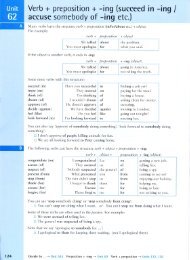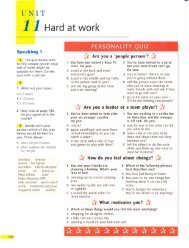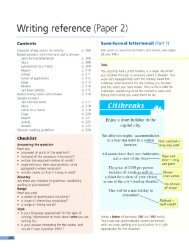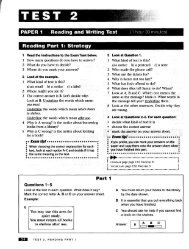I Vo.t are going to hear a news broadcast. Before you listen,look at ...
I Vo.t are going to hear a news broadcast. Before you listen,look at ...
I Vo.t are going to hear a news broadcast. Before you listen,look at ...
Create successful ePaper yourself
Turn your PDF publications into a flip-book with our unique Google optimized e-Paper software.
JIJ<br />
_a)<br />
Use of English<br />
For questions 1-15, read the text below and think of the word which best fits each<br />
space. Use only one word in each space. There is an example <strong>at</strong> the beginning (0).<br />
A{X;s16$>s:r 'r:'l:<br />
grammar fron the<br />
.rest of the bnok<br />
as well,as the<br />
'' "':gtammar in<br />
this unit.<br />
ANTARCTICA<br />
It is probable th<strong>at</strong> until two hundred years (O) .......*9o-......., Antarctica had never been seen<br />
by any human eyes. The first people who <strong>are</strong> known <strong>to</strong> have seen it (1) ................... hunters<br />
on ships in 1819. Two years l<strong>at</strong>er, one of them (2) .................... <strong>to</strong> land there even<br />
(3) ........ ........ conditions prevented him from exploring very far. Larger scientific expeditions<br />
l<strong>at</strong>er came <strong>to</strong> the Antarctic <strong>to</strong> find out more. By the end of the nineteenth century they had<br />
succeeded in mapping the coast of the continent, in (4) ....... ........... of the fact th<strong>at</strong><br />
Antarctica is almost entirely covered by a thick (5) .. ............... of ice which in places<br />
stretches far (6) the edge of the land on<strong>to</strong> the sea.<br />
There was something else which <strong>at</strong>tracted people <strong>to</strong> Antarctica (7) .................. scientific<br />
research. This was the South Pole. A number of <strong>at</strong>tempts <strong>to</strong> reach it were (8) ...................... in<br />
the early years of the twentieth century, (9) . ...... ........ the first person <strong>to</strong> get there was the<br />
Norwegian, Roald Amundsen, in 7977. Travelling with dogs (10) ... ............. pull the sledges<br />
(11) ..... ............. carried his party's supplies, he arrived (12) .................... the pole five weeks<br />
before his rivals, a British group (13) . ..... ......... by Robert Scott.<br />
(14) . ............... the terrible we<strong>at</strong>her conditions, many n<strong>at</strong>ions now have scientific bases on<br />
Antarctica, (15) ......... ........ out research on a gre<strong>at</strong> range of subjects.<br />
222


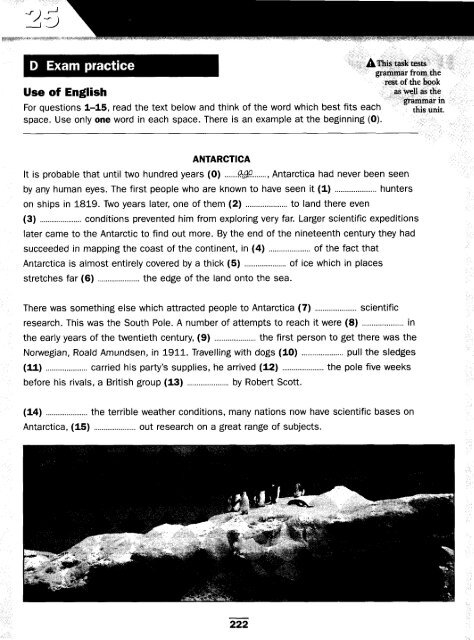
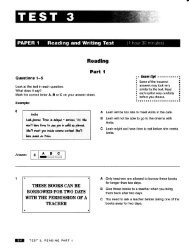
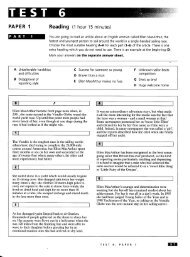
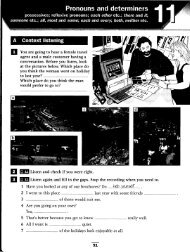
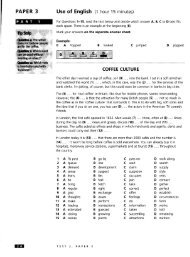
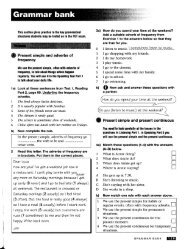
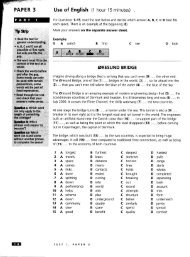
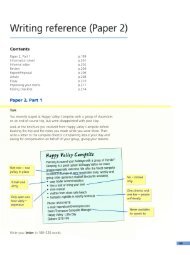

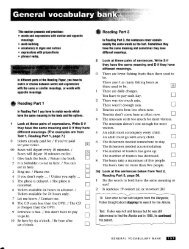
![T]NIT 9 A new look](https://img.yumpu.com/40125756/1/190x248/tnit-9-a-new-look.jpg?quality=85)
